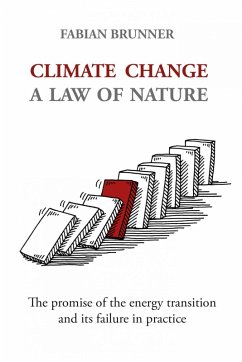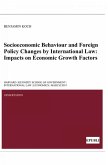Instead of adapting to the changing climate, all the relevant groups in German society have joined forces to combat climate change. No attempt has been made to avoid technical efforts or costly measures. The energy transition and the Green Deal have tremendous consequences for the state, society and individuals. Public debate has tended to ignore these consequences and has failed to consider the cost. Dr. Fabian Brunner analyses the mode of operation of the energy transition and comes to the conclusion that it has set in motion a spiral that will fundamentally transform the German economic system rather than the global climate. Not only the climate has "points of no return" after which interventions will no longer be possible. This also applies to the economy – when these points have been passed, it will no longer be possible to prevent an ext- reme loss of prosperity for future generations.








